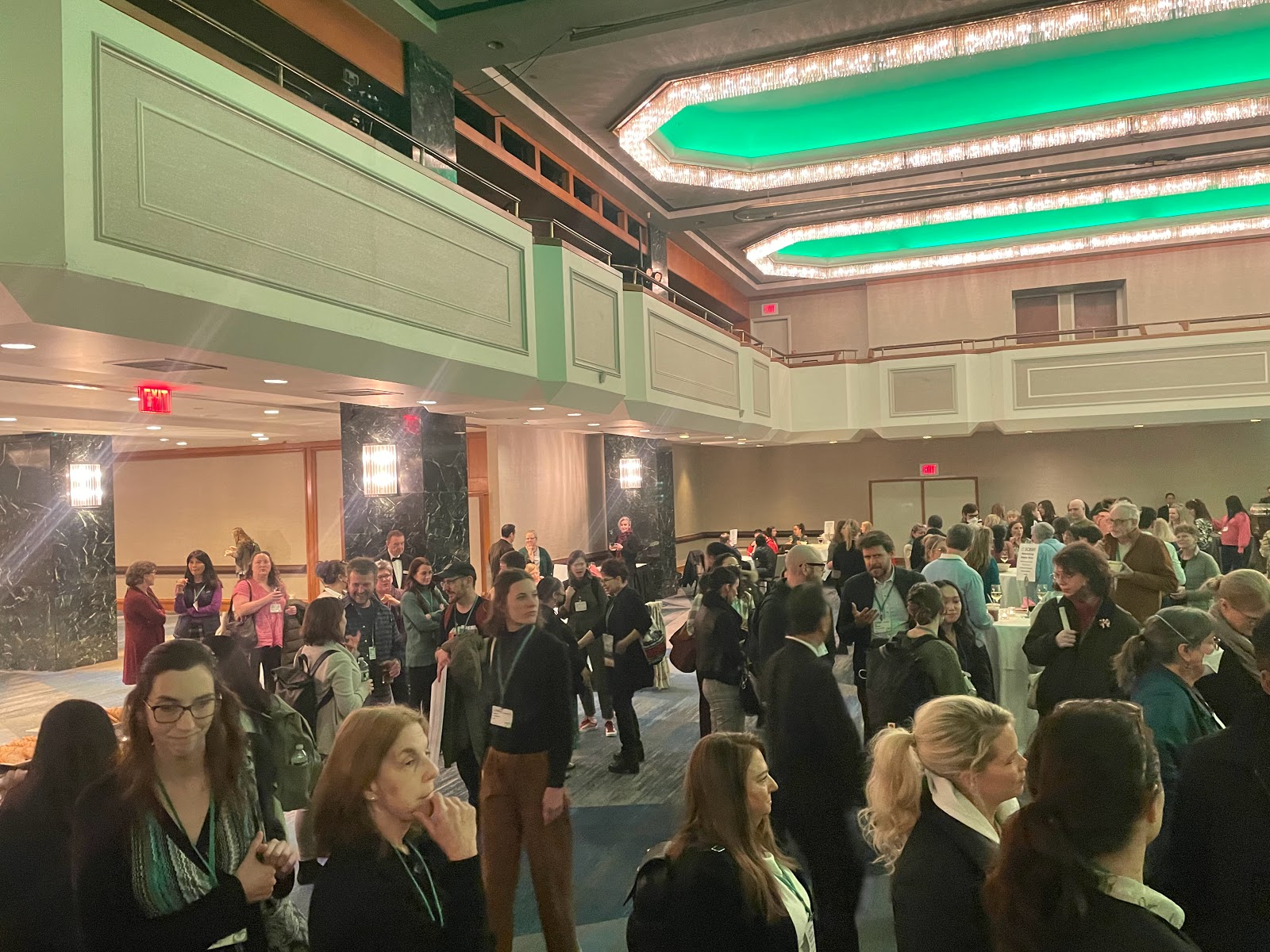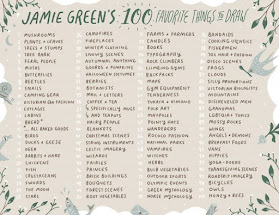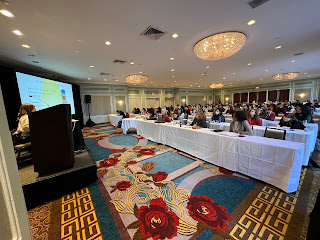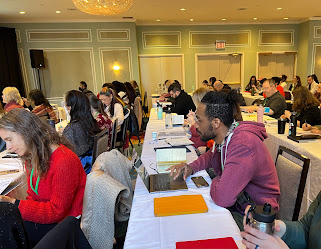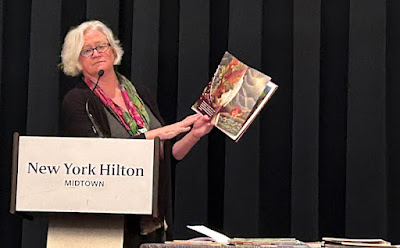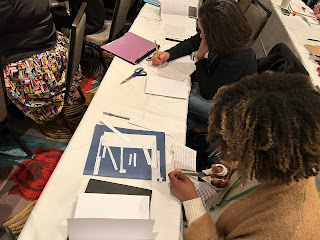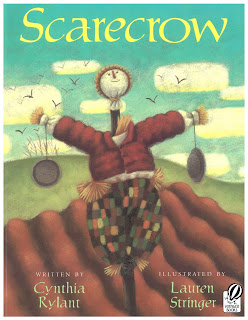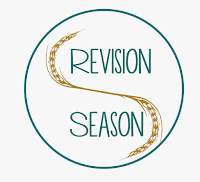Aisha Saeed is an award-winning and New York Times bestselling author of books for children. Her books, including the middle grade novel Amal Unbound (Penguin), the young adult novel Yes No Maybe So (co-written with Becky Albertalli), and the anthology Once Upon Eid (co-edited with S.K. Ali) received multiple starred reviews. Amal Unbound was selected as a Global Read Aloud for 2018 and was the winner of the South Asian book award. Her picture book Bilal Cooks Daal (Simon and Schuster) received an APALA honor. Aisha is also a founding member of the nonprofit We Need Diverse Books™. She lives in Atlanta, Georgia with her family. You can find her on Twitter and Instagram via @aishacs.
Aisha as a child was an avid library-goer and reader. So much so that she pretended to be afraid of the dark so she could get a nightlight to read at night. But as much as she read, she didn't see someone that looked like her in the stories she read. She had lots of "window" books, but not "mirror" books. Not that they didn't exist but she didn't have access to any of them.
Success for her early on was the joy of the creation, filling notebook after notebook. but she didn't have any thought of becoming a published author. She didn't really know it was possible.
"You can't be what you can't see." Marian Wright Edelman
Sahbanu
But in college she came across SHABANU by Suzanne Fisher Staples and it was the first time she saw
someone who looked like her on the cover of a book. It was a profound moment.
Later that year, Aisha found Interpreter of Maladies by Jhumpa Lahiri written by a South Asian writer. This gave Aisha an "oh" moment, that maybe she could do this and have this dream.
So she wrote. Aisha wrote a terrible draft and saw that it something wrong with her. Successfully completely a book felt elusive. And so she went to law school, as people do.
But later, a piece of advice made Aisha realize she wanted to go back to this dream. And with each draft the book got even better. Success...her first book!
This is when success shifted. Now she needed an agent. With agent another shift. A book to sale. And then the rejections started. Twenty-nine editors, over three years, all said no.
Three years of "no" was hard, but the reasons why were harder. Reasons like: I have another Indian author on my list. But there was one last editor the book was going to be sent, and this was the one!
But even after being published Aisha found what was being written about her book, books by marginalized people, were hard read. She found
Ellen Oh's website and information on the diversity gap.
Aisha then stumbled across a conversation happening on Twitter that grew and grew about how America is getting more diverse, but why aren't our books. A hashtag started out of that #weneeddiversebooks, and many amazing post like this:
They were invited to BookCon and had a standing room only crowd and in that moment they knew it wasn't just a moment, it was a movement.
At this point Aisha was going to conferences and meeting writers she admired, but success shifted again. She wanted to write another book and so she wrote AMAL UNBOUND, but she was being told readers didn't care about character living in a far off place (in this case Pakistan). Again, self-doubt creeps in.
Then something amazing happened. AMAL UNBOUND was selected for a Global Read Aloud, followed by hitting the bestseller list. This it. Success, she thought. But again. All those goal posts keep shifting.
The definition of success starts to get squishy. Aisha had all these markers of success, but why didn't she feel it. What would make her feel like she was a success?
She reached out to the author of MAKE YOUR ART NO MATTER WHAT by Beth Pickens.
She told Aisha that how she was feeling was normal. That goals shift. That they keep on shifting. But if you define making each goal, you won't ever feel successful. Rather the need it's the focus on connection and personal meaning that allow you to feel success. When Aisha set aside the external markers of success, that's when things changed.
Aisha shared with us so many beautiful and moving stories of these successes, of these meaningful connections and moments that have come from doing the work.
"Our stories and our words matter," she said. "The telling of the stories is the heart of the work."
And with that, a standing ovations that I hope brought her another moment of success, because she connected with the hundreds of hearts in the room.










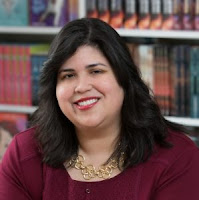





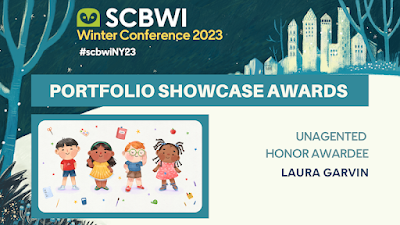


.png)









